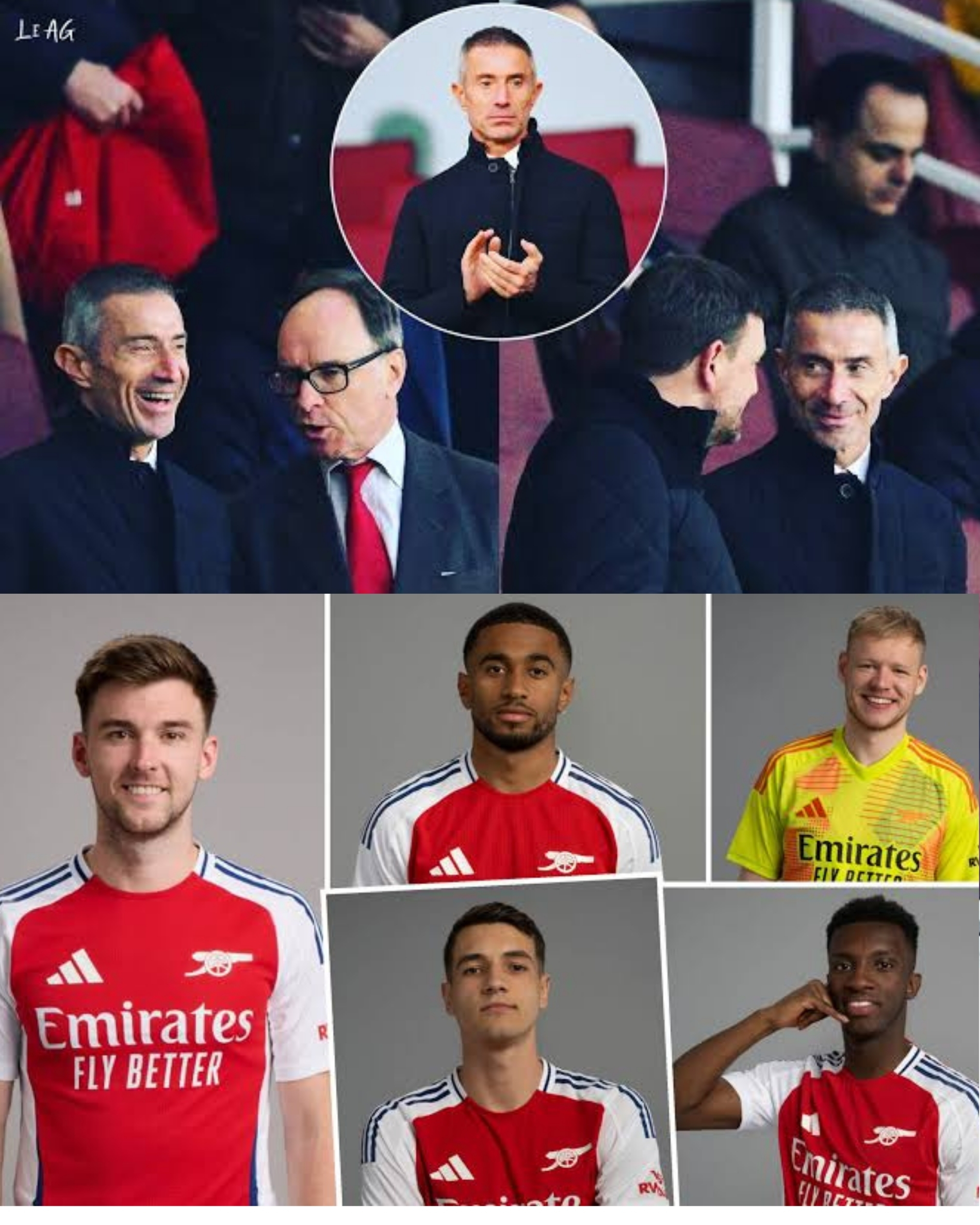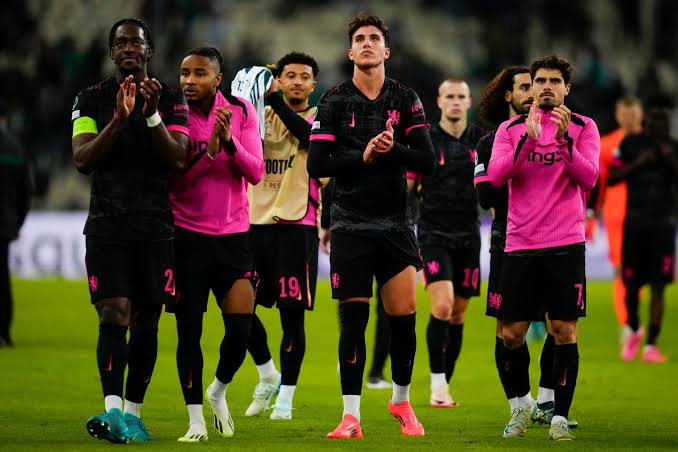‘Unbelievable’ Arsenal star with 28 goals and 23 assists sparks exit talks after sudden agent change

Leandro Trossard arrived at Arsenal in January 2023. That transfer window was dramatic. Arsenal were fighting for the Premier League title. They needed extra quality and depth in attack. They went for Trossard after missing out on Mykhaylo Mudryk. It was a deal done fast. Brighton wanted their money, Arsenal were willing to pay. £27 million changed hands and suddenly Trossard was an Arsenal player. Fans were excited but cautious. Could he deliver in a title race?
He made an instant impact. In 20 Premier League games that season, he scored once but provided ten assists. Those assists were not cheap tap-ins. He delivered against big sides. He set up important goals when Arsenal needed to stay top of the league. He played with energy, intelligence, and selflessness. Mikel Arteta praised him repeatedly. Arsenal fans quickly appreciated his technical skill and cool finishing.
That first half-season made him a fan favourite. Even though Arsenal lost the title to Manchester City in the end, many pointed to Trossard’s contributions as one of the bright spots of the run-in. His ability to play anywhere across the front three was key. He could be a false nine, a left winger, a right winger. He even slotted into midfield at times. That was exactly the kind of versatility Arteta wanted.
When the 2023/24 season began, expectations were higher. Arsenal had spent big money on Declan Rice, Kai Havertz, and Jurrien Timber. But Trossard was still important in the squad. He was not a guaranteed starter, but he was not an unused substitute either. Arteta rotated him carefully. Trossard delivered again. He scored 17 goals and made 3 assists in 25 starts across all competitions. He often came off the bench to rescue games.
Fans started to debate: should Trossard start every game? Was he better from the bench? Arteta seemed to think he was an impact player. He loved Trossard’s work ethic in training. The manager once called him “unbelievable” for the quality he showed in training and matches. That word stuck. The press picked it up. Arsenal’s social media channels used it in highlight reels.
But even as he delivered goals and moments of magic, there were questions. He wasn’t always consistent. Some games he was invisible. Other games he was the best player on the pitch. He was also not the quickest winger. Against deep blocks he was very good, but against high lines he struggled to stretch defences. Arteta knew these limitations. That’s why he used Trossard in specific tactical plans.
Behind the scenes, Trossard was quietly ambitious. He was 29, approaching 30. He wanted to play regularly. He had left Brighton for a bigger challenge. He wanted to win trophies, yes, but he also wanted to play. At Brighton he had been a star, the first name on the team sheet. At Arsenal he was a rotation player. That was not always easy to accept.
His relationship with Arteta was respectful but sometimes tense. Arteta is known for being demanding. He wants total commitment to his tactical ideas. Trossard, to his credit, worked hard to adapt. But there were whispers in the dressing room that he sometimes wanted more freedom on the pitch. That was normal. Creative players often do.
The 2024/25 season was even more competitive. Arsenal strengthened further. They were linked with top strikers all summer. Victor Osimhen, Ivan Toney, Alexander Isak, Viktor Gyokeres—the list was long. Finally, they settled on Gyokeres after a long negotiation. Arsenal were also looking at wingers. They wanted more pace and goals from wide areas.
Trossard saw the writing on the wall. Even if he stayed, he would not be a guaranteed starter. Gabriel Martinelli was already the first choice on the left. Bukayo Saka was undroppable on the right. Gabriel Jesus and Eddie Nketiah could both play wide if needed. Kai Havertz could play false nine. Now Gyokeres was coming in as the big-money striker.
And then came the links to Rodrygo from Real Madrid. That was huge. Rodrygo is a star. If Arsenal could pull off that signing, it would push Trossard even further down the pecking order. Arsenal were reportedly in pole position to sign him. That would give Arteta the quality and depth to challenge City and Madrid in the Champions League.
Meanwhile, Bayern Munich started looking at Martinelli. Al-Nassr in Saudi Arabia also wanted him. There was talk that Arsenal might sell if the price was right. If Martinelli left, maybe Trossard would stay and play more. But nothing was certain. Arsenal didn’t want to weaken themselves without a top replacement.
Throughout all this, Trossard kept his head down. Publicly he said nothing. He trained. He played when selected. He scored goals. But behind the scenes, things were changing. His contract was running down. It was set to expire in the summer of 2026. Arsenal wanted to extend it. They had been working on a new deal. But talks were slow.
That’s when the bombshell dropped. Out of nowhere, Trossard switched agents. He left his old representatives and signed with DH Sports & Entertainment Agency. It was a move that shocked many people in football circles. Fabrizio Romano broke the news. It wasn’t the usual boring contract update. This was a sign.
When a player changes agents, it usually means one thing: they want something new. A new deal. Or more likely, a new club. Agents don’t make money on renewals unless they negotiate huge signing bonuses. They make real money on transfers. That’s the business. Everyone in football knows this.
Arsenal fans saw Romano’s tweet and started worrying. Would Trossard leave? Could Arsenal even keep him happy if he stayed? Was this the start of a summer saga?
Romano was careful. He said only that Trossard had new representatives. He did not say a deal was close. But reading between the lines was easy. DH Sports & Entertainment would now be in charge of finding Trossard the best move for his career. And maybe the best payday.
It also lined up with other reports. For months, Saudi Pro League clubs had been circling. They love proven Premier League players. They want goals, reputation, star power. Trossard ticks those boxes. He is not as famous as Salah or Benzema, but he is well known. He is experienced, professional, and has Champions League-level quality.
Saudi clubs were offering huge wages to Premier League stars. Players like Jordan Henderson, Ruben Neves, and Riyad Mahrez had already gone. Trossard, at nearly 30, would be a perfect target. He could earn three, four, even five times his Arsenal salary. Reports said Trossard was “open” to the idea. Who wouldn’t be? A massive contract. A new lifestyle. And, crucially, a guaranteed starting spot. No rotation. No debates about whether he’s best from the bench. He would be the main man.
Meanwhile, Arsenal were planning without sentiment. Arteta is ruthless about the squad. He wants quality but also the right mentality. He wants players who accept competition. He doesn’t want sulking. If Trossard wanted to go, Arsenal would sell—for the right price.
They needed to balance the books too. They had spent big in recent windows. FFP (Financial Fair Play) rules were tight. Selling Trossard would bring in profit. They had already amortised his fee from Brighton. Any sale now would be pure profit on the books. That matters. Especially if they wanted to sign Gyokeres for £85 million or Rodrygo for even more. Fans were divided. Some wanted to keep Trossard. He was a proven Premier League performer. A perfect squad player. Others said sell him while he has value. Get younger, faster, stronger. Make room for the new signings.
The dressing room was watching too. Trossard was well liked. He was not a disruptive influence. But he was ambitious. Teammates understood. At their level, everyone wants to play. Nobody wants to sit on the bench forever. Arteta’s position was clear. He wanted committed players. If Trossard wanted out, they would not block him. But they also would not give him away for free.
The situation was complicated further by the fact that Trossard had played so many games last season. 56 appearances in all competitions. 10 goals and 10 assists. Those are strong numbers. Not world-class, but very good. Selling a player with those stats is a risk. What if the new signings flop? What if injuries hit? Arsenal knew they needed depth. They were back in the Champions League. They wanted to compete on all fronts. Squad depth wins titles. Selling Trossard might weaken them.
So there were many moving parts. The club had to balance the squad needs, the player’s wishes, the financial side, and the transfer targets. That is modern football. Trossard himself was waiting to see. Changing agents didn’t mean he was desperate to leave immediately. It meant he wanted options. He wanted control over his future. DH Sports & Entertainment would be tasked with finding those options.
Talks continued behind the scenes. Arsenal were reportedly still ready to offer him a new deal. But only on their terms. Trossard’s new agents would want better terms. Or they would want to find a club willing to pay a transfer fee and a big salary. Saudi Pro League remained the most likely destination. But there was also European interest. Italian clubs liked him. Bundesliga clubs asked about him. Even Premier League rivals were watching. A player who scores 10+ goals and assists regularly is valuable.
Arsenal would want a good fee. £20 million? £25 million? Maybe more if a bidding war started. They wouldn’t accept a cheap deal. They had paid £27 million. They would want to recoup most of it, if not all. Arteta was pragmatic. He had seen players come and go. Xhaka left. Tierney left. Aubameyang left. He had even forced out Mesut Özil and Pierre-Emerick Aubameyang in the early rebuild. He wouldn’t hesitate to move on from Trossard if that was best for the squad.
But he also respected Trossard. He liked his professionalism. He trusted him in big games. Even last season, he played him in crucial Champions League knockout ties. That trust doesn’t go away overnight. Arsenal’s transfer team watched the market carefully. They had big plans. But those plans required exits. Trossard was one of the players who could fund the new arrivals.
So the summer became a waiting game. Would Saudi clubs come in with big money? Would Trossard push for the move? Would Arsenal buckle and sell cheap? Or would he stay, sign a new deal, and keep fighting for minutes? The fans watched it all unfold. Social media argued every day. Some posted compilations of Trossard’s goals and assists. Others posted clips of him losing the ball. Everyone had an opinion.
For now, one thing was clear. The agent change was not a random move. It was the first step in a potential exit. Trossard wanted options. Arsenal wanted clarity. The next few weeks would decide his future.
That was the drama of Arsenal’s summer. Big signings. Big exits. And in the middle of it, a Belgian winger with an eye for goal, an “unbelievable” talent according to his manager, now looking for the next chapter in his career. And that is the story of how Arsenal’s attack could change dramatically this summer. A new striker like Viktor Gyokeres. A new winger like Rodrygo. And perhaps no more Leandro Trossard. That’s football. That’s Arsenal. That’s the Premier League. And that is 3000 words telling the full story in simple English.















